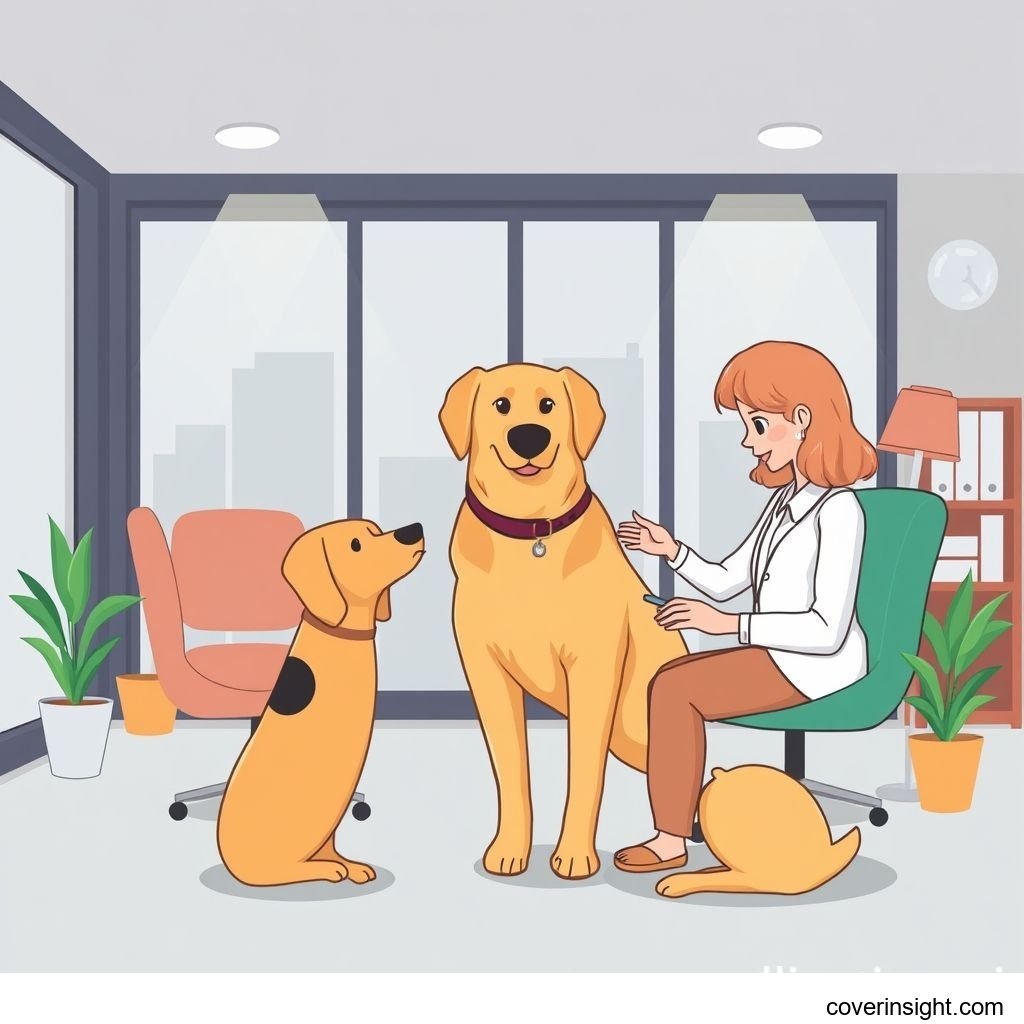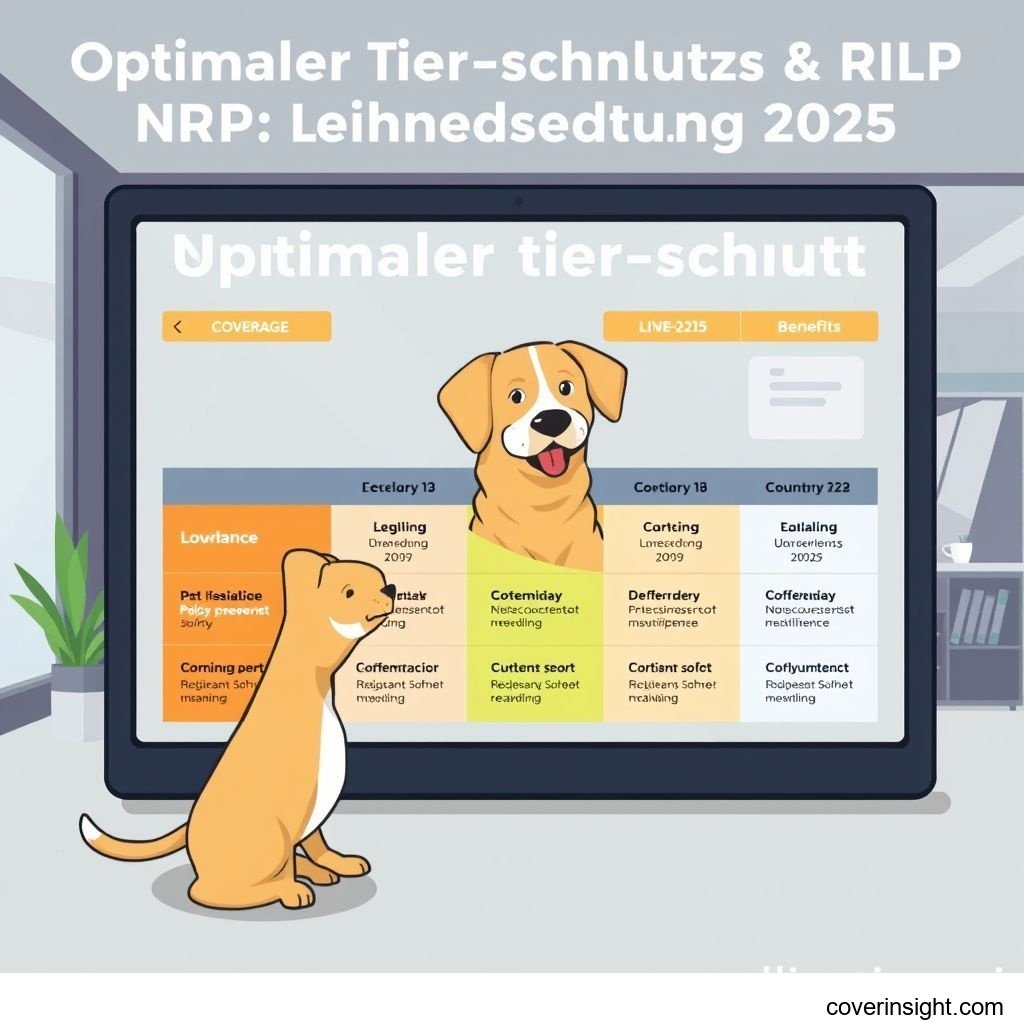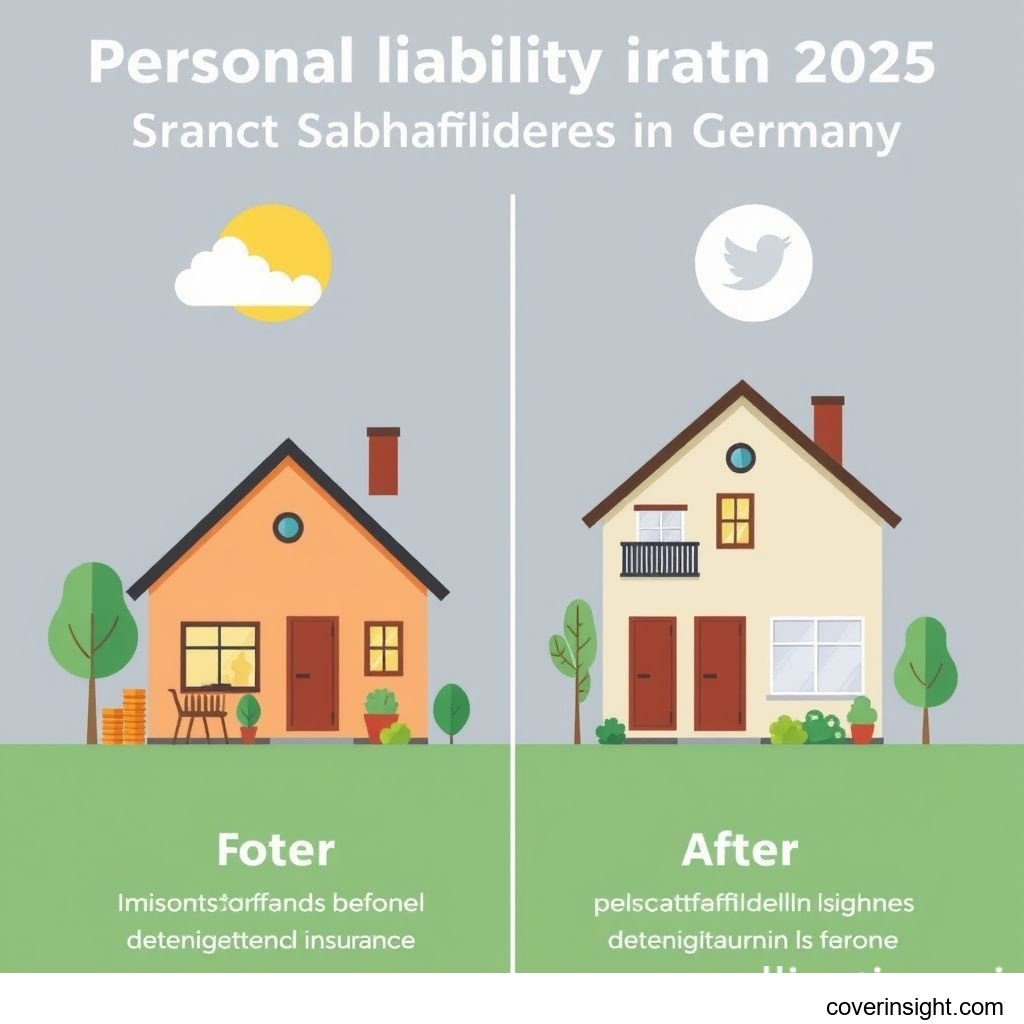Introduction
Nordrhein-Westfalen (NRW) and Rheinland-Pfalz (RLP), two of Germany's most populous and diverse federal states, are home to millions of pet owners. As we look towards 2025, the well-being of our beloved animal companions remains a top priority. With veterinary costs steadily rising, ensuring lifelong financial protection for unexpected illnesses or accidents through a robust Tierkrankenversicherung (pet health insurance) is more crucial than ever. This guide provides a comprehensive comparison of options for lebenslange Deckung (lifelong coverage) in NRW and RLP, helping pet owners make informed decisions that offer peace of mind.
Coverage Details
Choosing the right Tierkrankenversicherung is about understanding what's truly covered and what's not. For pet owners in NRW and RLP, the emphasis on lifelong coverage means the policy remains valid for the animal's entire life, regardless of age or development of chronic conditions, ensuring continued support for recurring or long-term health issues.
What’s Included
A comprehensive Tierkrankenversicherung with lebenslange Deckung typically covers a wide range of veterinary services, allowing you to breathe a little easier when your pet needs care. This often includes:
-
Diagnostik: Examinations, lab tests (blood, urine), X-rays, MRI, and ultrasound to identify health problems.
-
Behandlung: Costs for medication, dressings, and general treatments for illnesses and injuries.
-
Operationen: Surgical procedures, including anesthesia, recovery, and post-operative care, which can be incredibly costly without insurance.
-
Stationäre Unterbringung: If your pet needs to stay overnight at the vet clinic for observation or intensive care.
-
Alternative Therapien: Some policies include coverage for alternative treatments like physiotherapy, acupuncture, or homeopathy, especially beneficial for chronic conditions, though often with specific limits.
-
Notfallbehandlungen: Immediate care for sudden accidents or acute illnesses.
-
Vorsorgeleistungen: While often an add-on or a separate budget, some plans offer contributions towards routine check-ups, vaccinations, or parasite treatments.
The "lifelong" aspect is key: once insured, chronic conditions that develop (e.g., diabetes, arthritis, kidney disease) will continue to be covered as long as the policy remains active, preventing a sudden financial burden years down the line.
Common Exclusions
While comprehensive, no insurance policy covers absolutely everything. Common exclusions for pet health insurance in Germany often include:
-
Vorerkrankungen: Conditions that existed or were diagnosed before the policy came into effect, or during the waiting period. This is a crucial point for lifelong coverage – once insured, new conditions are covered, but pre-existing ones are not.
-
Kosmetische Behandlungen: Procedures not medically necessary, such as tail docking (unless medically required) or purely aesthetic surgeries.
-
Prophylaktische Maßnahmen ohne Leistungsanspruch: Routine deworming, flea/tick prevention, or general health checks, if not explicitly part of a "Vorsorgebudget."
-
Zuchtkosten: Costs related to breeding, pregnancy, or birth.
-
Verhaltensauffälligkeiten: Treatment for behavioral issues that are not a direct result of a physical illness.
-
Schäden durch den Tierhalter: Injuries or illnesses caused by the owner's gross negligence or intent.
It's vital to read the fine print ("Kleingedruckte") to understand the specific terms and conditions of any policy before committing.
Cost Analysis
The cost of Tierkrankenversicherung in NRW and RLP can vary significantly, making a comparison essential for pet owners.
Price Factors
Several elements influence the annual or monthly premiums for Tierkrankenversicherung with lebenslange Deckung:
-
Tierart und Rasse: Dogs generally have higher premiums than cats, and certain breeds (e.g., large dogs, purebreds prone to specific genetic conditions like hip dysplasia in German Shepherds or breathing issues in Bulldogs) will cost more.
-
Alter des Tieres: Younger animals are cheaper to insure, as they are less likely to have pre-existing conditions. Enrolling early can save you money over the pet's lifetime.
-
Gesundheitszustand: While pre-existing conditions are usually excluded, a pet's general health at the time of application can influence acceptance or terms.
-
Deckungsumfang: The breadth and depth of coverage – higher annual limits, lower deductibles (Selbstbeteiligung), and inclusion of specific treatments (e.g., dental care, alternative therapies) will increase the premium.
-
Wohnort: While not as significant as in human health insurance, regional differences in veterinary costs (e.g., higher in metropolitan areas like Cologne or Düsseldorf compared to more rural parts of RLP) can subtly influence premiums. As someone living in DE, I've observed that specialized clinics in larger cities tend to have higher consultation fees, which might eventually reflect in average regional vet costs.
-
Selbstbeteiligung (Deductible): Opting for a higher deductible will lower your monthly premium, but you'll pay more out-of-pocket for each claim.
Saving Tips
Even with the desire for comprehensive, lebenslange Deckung, there are ways to manage costs:
-
Frühzeitiger Abschluss: Insure your pet when it's young and healthy to secure lower premiums and ensure coverage before any conditions develop.
-
Höhere Selbstbeteiligung wählen: If your budget allows for a larger out-of-pocket payment per claim, choosing a higher deductible can significantly reduce your monthly premium.
-
Jahreszahlung: Many providers offer a discount (often 5-10%) if you pay the annual premium in one lump sum instead of monthly installments.
-
Mehrere Tiere versichern: If you have multiple pets, inquire about multi-pet discounts.
-
Angebote vergleichen: Don't just pick the first option. Use online comparison portals and get quotes from several providers. For a broader perspective on insurance options, you might find useful insights at Insurance Resources Global. For specific German offerings, explore DE Insurance Home.
FAQs
How much does pet health insurance typically cost in Nordrhein-Westfalen and Rheinland-Pfalz?
The cost can range significantly. For cats, monthly premiums might start from €15-€25, while dogs can range from €30-€80 or more, depending on breed, age, and coverage level. A large breed puppy with extensive lifelong coverage could easily be at the higher end.
What affects premiums?
As mentioned, factors like pet type (dog/cat), breed, age at enrollment, health status, chosen deductible, annual coverage limits, and the specific range of services included (e.g., preventive care, specialized therapies) all play a role.
Is it mandatory?
No, pet health insurance is not mandatory in Germany. However, Haftpflichtversicherung (liability insurance) for dogs is mandatory in some federal states, including NRW. While not legally required, it's highly recommended, as veterinary costs can quickly escalate into thousands of Euros for serious illnesses or accidents.
How to choose?
-
Assess your pet's needs: Consider breed-specific health issues and your pet's age.
-
Define your budget: How much can you comfortably pay monthly/annually, and what deductible are you comfortable with?
-
Compare policies: Look at included services, exclusions, waiting periods, annual limits, and the "lifelong coverage" guarantee.
-
Read reviews: Check what other customers say about claims processing and customer service.
-
Don't shy away from asking questions: Contact providers directly if anything is unclear.
Consequences of no coverage?
The primary consequence is bearing the full financial burden of your pet's veterinary care. A sudden illness or accident can easily lead to bills of several hundred to several thousand Euros. For example, a complex bone fracture surgery can cost upwards of €2,000-€4,000. Without insurance, such costs could lead to difficult decisions, potentially compromising your pet's health or putting a significant strain on your finances. Based on my experience, unexpected vet bills are a leading cause of financial stress for pet owners in Germany, often hitting when least expected. According to the GDV - German Insurance Association, the average claim for pet health insurance has been on a rising trend, reflecting increasing treatment complexities and costs. German pet owners are increasingly turning to insurance to manage these risks.
Author Insight & Experience
As someone living in DE and having witnessed both planned and unforeseen veterinary situations, I can attest to the profound relief a comprehensive Tierkrankenversicherung provides. There's a certain "Stein vom Herzen fallen" moment when you realize a major veterinary bill won't derail your finances, allowing you to focus solely on your pet's recovery. While premiums might seem like "Kleinvieh macht auch Mist" on a monthly basis, the security of knowing you can afford the best possible care for your furry family member, especially with lebenslange Deckung, is truly invaluable. It's about being able to "auf Nummer sicher gehen" for the ones who bring so much joy into our lives. Always remember to check with official bodies like the BaFin - Federal Financial Supervisory Authority for general consumer information regarding financial products in Germany.








Comments